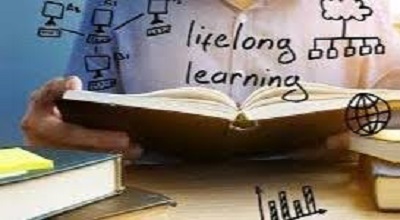Lifelong Learning for Teachers
Lifelong Learning for Teachers: In the ever-evolving field of education, teachers must continuously update their knowledge and skills to stay effective. The Lifelong learning for teachers is not just a professional requirement but a necessity to adapt to new teaching methodologies, technological advancements, and diverse student needs.
This website explores the importance of lifelong learning for educators, provides real-world examples, and discusses the latest trends and strategies to help teachers stay ahead in their profession.
What is Lifelong Learning for Teachers?
Lifelong learning refers to the continuous, voluntary, and self-motivated pursuit of knowledge for personal or professional development. For teachers, it means constantly upgrading their teaching skills, subject knowledge, and pedagogical strategies to enhance student learning outcomes.
Key Aspects of Lifelong Learning for Teachers:
- Professional Development Workshops
- Online Courses & Certifications
- Peer Learning & Collaboration
- Research & Publications
- Adapting to New Technologies
Why is Lifelong Learning Important for Educators?
Teachers play a crucial role in shaping future generations. Here’s why lifelong learning is essential:
A. Keeping Up with Educational Trends
- New teaching methods (e.g., flipped classrooms, gamification)
- Updated curriculum standards (e.g., STEM, SEL integration)
B. Enhancing Teaching Effectiveness
- Better classroom management techniques
- Improved student engagement strategies
C. Career Growth & Leadership Opportunities
- Higher qualifications lead to promotions
- Opportunities to become mentors or trainers
D. Meeting Diverse Student Needs
- Inclusive education for students with disabilities
- Culturally responsive teaching
Latest Trends in Lifelong Learning for Teachers
The education sector is rapidly changing. Here are the latest trends in teacher professional development:
A. Micro-Credentials & Digital Badges
- Short, focused courses on platforms like Coursera, edX
- Recognition through digital certifications
B. AI & EdTech Integration
- Using ChatGPT, Google Classroom, VR/AR tools
- Personalized learning through AI-driven platforms
C. Social-Emotional Learning (SEL) Training
- Helping students manage emotions & build resilience
- Programs like CASEL’s SEL Framework
D. Global Teacher Collaborations
- Online communities (Twitter chats, LinkedIn groups)
- International teaching exchanges
Examples of Lifelong Learnings for Teachers
Here are real-world examples of how teachers engage in lifelong learning:
1: Online Master’s Degree in Education
- Many teachers pursue M.Ed or PhD while teaching.
- Universities like Harvard, University of Phoenix offer flexible programs.
2: Attending ISTE Conferences
- International Society for Technology in Education (ISTE) provides workshops on digital teaching tools.
3: Peer Observations & Feedback
- Teachers observe colleagues’ classes to learn new techniques.
4: MOOC Courses (Coursera, Udemy)
- Free/paid courses on classroom management, special education, etc.
5: Action Research Projects
- Teachers conduct classroom-based research to improve teaching methods.
Strategies for Effective Lifelong Learnings
To make lifelong learning sustainable, teachers should follow these strategies:
A. Set Clear Learning Goals
- Identify skills to improve (e.g., technology integration, student assessment).
B. Leverage Online Learning Platforms
- Khan Academy, Teachable, LinkedIn Learning
C. Join Professional Learning Communities (PLCs)
- Facebook groups, Reddit forums, local teacher associations
D. Reflect & Apply Knowledge
- Keep a teaching journal to track progress.
Challenges in Lifelong Learnings and How to Overcome Them
Despite its benefits, lifelong learning comes with challenges:
| Challenge | Solution |
|---|---|
| Time Constraints | Use micro-learning (10-15 min daily) |
| Financial Barriers | Seek scholarships, free webinars |
| Lack of Motivation | Join accountability groups |
FAQs on Lifelong Learnings for Teachers
Q1. How can busy teachers find time for lifelong learnings?
- Use podcasts, audiobooks, or weekend workshops.
Q2. Are there free lifelong learnings resources for teachers?
- Yes! Google for Education, TED-Ed, BBC Teach offer free materials.
Q3. What is the best way to track professional development?
- Maintain a digital portfolio (LinkedIn, personal blog).
Conclusion
Lifelong learning is not optional but essential for teachers who want to remain effective in a dynamic educational landscape. By embracing online courses, peer collaborations, and the latest EdTech tools, educators can ensure they provide the best learning experiences for their students.
Free Here: Deepseek
